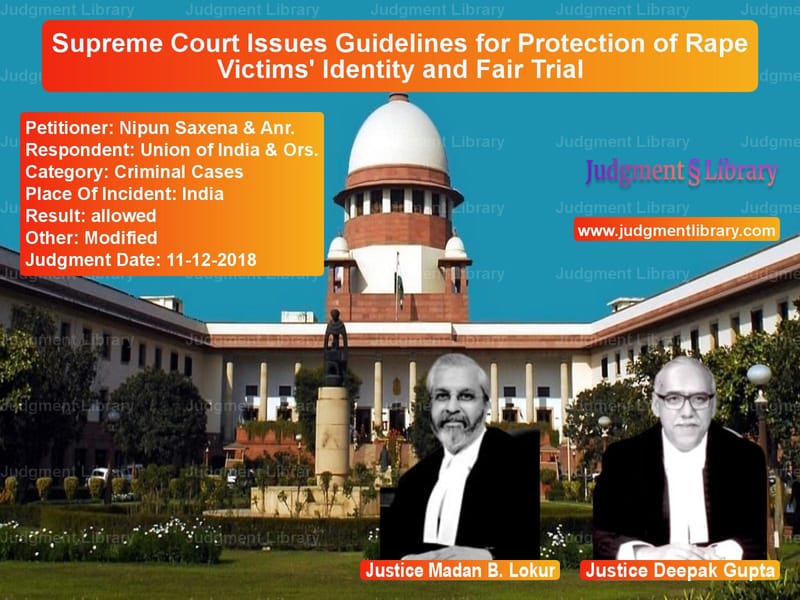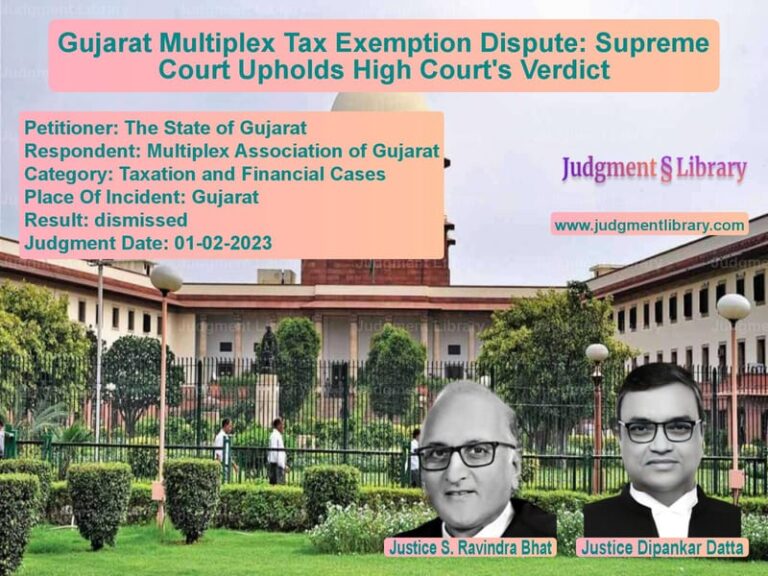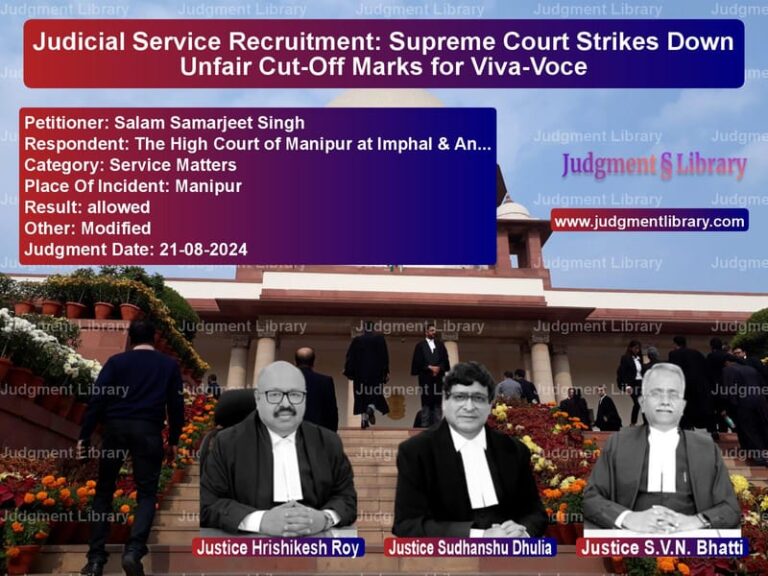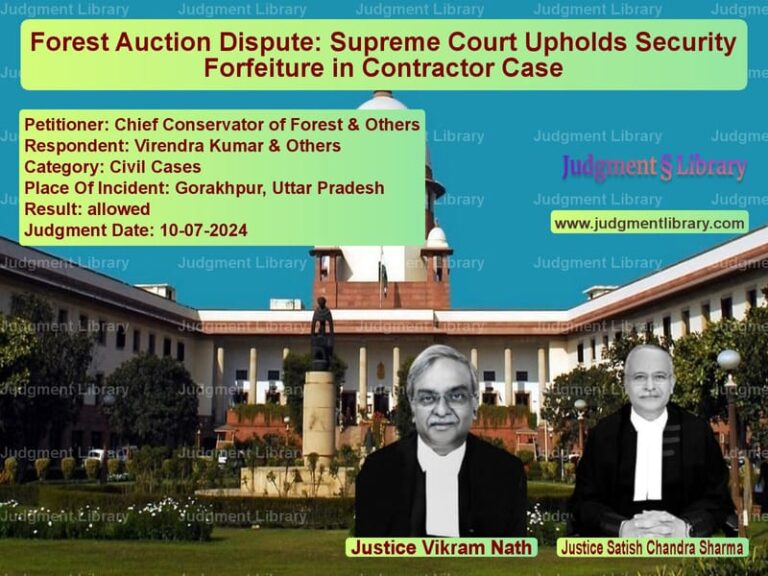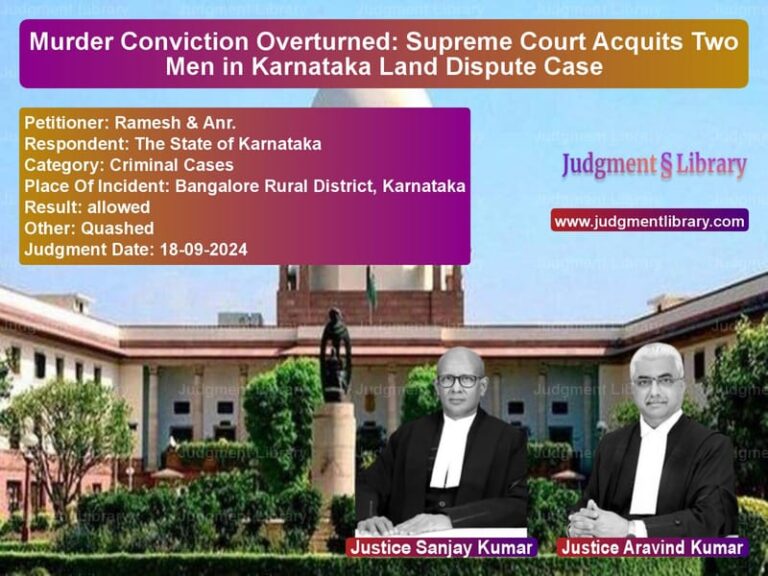Supreme Court Issues Guidelines for Protection of Rape Victims’ Identity and Fair Trial
The case of Nipun Saxena & Anr. vs. Union of India & Ors. is a landmark ruling that establishes legal guidelines for the protection of rape and sexual abuse victims’ identity in India. The Supreme Court emphasized that victims should not suffer additional trauma due to societal stigma, media exposure, or procedural lapses in the judicial process.
The judgment addressed critical issues regarding the role of law enforcement, media, and the judiciary in ensuring that the identity of victims remains confidential. It also provided clarity on the application of Section 228A of the Indian Penal Code (IPC) and Sections 327 and 372 of the Code of Criminal Procedure (CrPC) in cases of sexual offenses.
Background of the Case
The petitioners, Nipun Saxena and others, filed a writ petition before the Supreme Court raising concerns about how the identity of rape victims, including minors, was being revealed due to procedural gaps. The case also considered multiple other petitions that highlighted the challenges faced by survivors in accessing justice while maintaining their dignity.
Key Legal Issues
- Whether the identity of rape victims should be disclosed under any circumstances.
- Whether trial proceedings in rape cases should be conducted in-camera to ensure privacy.
- What role the media should play in reporting sexual offenses without compromising victims’ dignity.
- How law enforcement should handle sensitive cases to prevent social ostracization of victims.
Petitioners’ Arguments
The petitioners contended that revealing the identity of victims leads to their victimization by society, making it difficult for them to reintegrate. They argued:
“The law should be strengthened to prohibit any publication or disclosure that indirectly exposes the victim’s identity, even if the name is withheld.”
The petitioners also emphasized that trials in rape cases should be conducted sensitively, ensuring that victims are not subjected to harsh cross-examinations that infringe upon their dignity.
Respondents’ Arguments
The Union of India and State Governments defended the existing laws but admitted that loopholes existed in enforcement. Their stance was:
“While the law protects victims under Section 228A IPC, there is a need for further judicial clarity to prevent media trials and protect victims’ privacy.”
The respondents supported the idea of in-camera trials but maintained that procedural constraints often led to delays in justice.
Supreme Court’s Observations
The Supreme Court, led by Justices Madan B. Lokur and Deepak Gupta, acknowledged the dire need for reforms. The Court ruled:
“No person can print or publish the name of the victim or even indirectly disclose any facts that could reveal the victim’s identity. This applies to all forms of media, including print, electronic, and social media.”
The Court further emphasized:
“A victim of rape is treated worse than the perpetrator of the crime. Society should not subject her to social ostracization, and law enforcement must ensure that victims do not feel like they are on trial.”
Guidelines Issued by the Court
The Court issued the following directives:
- FIRs related to rape and sexual offenses under IPC Sections 376, 376A, 376AB, 376B, 376C, 376D, and 376E should not be made public.
- Police officers must not disclose victims’ names or details in communication with the media.
- All trials for rape and sexual offenses must be conducted in-camera, ensuring that victims do not come face-to-face with the accused.
- Victims filing an appeal under Section 372 CrPC should be allowed to do so under pseudonyms, ensuring their identities remain protected.
- The identity of minor victims under the Protection of Children from Sexual Offences (POCSO) Act must remain confidential at all stages.
- Any organization wishing to disclose a victim’s identity must obtain permission from the Sessions Judge.
Significance of the Judgment
- Legal Protection: The ruling reinforces Section 228A IPC and Section 327 CrPC, ensuring that victims’ rights are safeguarded.
- Judicial Sensitivity: The decision mandates courts to maintain dignity and sensitivity while conducting rape trials.
- Media Responsibility: The judgment puts media outlets on notice, warning them against sensationalizing sexual assault cases.
- Victim Empowerment: By allowing victims to file appeals anonymously, the Court ensures that survivors can seek justice without societal backlash.
Conclusion
The Supreme Court’s ruling in this case serves as a milestone in ensuring justice for survivors of sexual offenses while protecting their dignity. The judgment establishes clear boundaries for law enforcement, the judiciary, and the media, preventing undue trauma for victims. It reinforces the idea that justice must be fair and sensitive, making India’s legal framework more victim-friendly.
Petitioner Name: Nipun Saxena & Anr..Respondent Name: Union of India & Ors..Judgment By: Justice Madan B. Lokur, Justice Deepak Gupta.Place Of Incident: India.Judgment Date: 11-12-2018.
Don’t miss out on the full details! Download the complete judgment in PDF format below and gain valuable insights instantly!
Download Judgment: Nipun Saxena & Anr. vs Union of India & Ors Supreme Court of India Judgment Dated 11-12-2018.pdf
Direct Downlaod Judgment: Direct downlaod this Judgment
See all petitions in SC/ST Act Case
See all petitions in Custodial Deaths and Police Misconduct
See all petitions in Judgment by Madan B. Lokur
See all petitions in Judgment by Deepak Gupta
See all petitions in allowed
See all petitions in Modified
See all petitions in supreme court of India judgments December 2018
See all petitions in 2018 judgments
See all posts in Criminal Cases Category
See all allowed petitions in Criminal Cases Category
See all Dismissed petitions in Criminal Cases Category
See all partially allowed petitions in Criminal Cases Category

